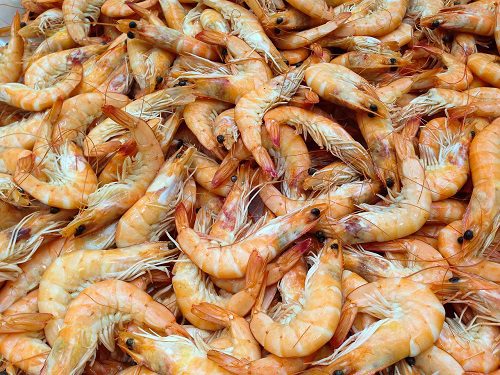When it comes to categorizing food, the classification of shrimp has been a topic of debate for many years. While some people consider shrimp as a type of seafood, others argue that it should be classified as meat. In this article, we will explore this debate in detail, including the nutritional profile of shrimp, its culinary uses, and cultural perspectives.
Nutritional Profile of Shrimp
Shrimp is a type of shellfish that is low in fat and calories but high in protein. A 3-ounce serving of shrimp contains about 20 grams of protein and only 84 calories. Additionally, shrimp is a rich source of several essential nutrients, including vitamin B12, phosphorus, and selenium.
While some people argue that the nutritional profile of shrimp is similar to that of meat, others point out that it lacks certain nutrients found in meat, such as iron and zinc. However, shrimp is an excellent source of omega-3 fatty acids, which are beneficial for heart health.
Culinary Uses of Shrimp
In the culinary world, shrimp is typically used in seafood dishes, such as shrimp cocktail, scampi, and gumbo. However, it is also used in non-seafood dishes, such as pasta and stir-fry. Some people argue that the versatility of shrimp in cooking makes it more similar to meat than seafood.
While shrimp is often used as a substitute for meat in dishes like stir-fry, others argue that it has a unique taste and texture that sets it apart from meat. Additionally, the way shrimp is prepared and cooked differs significantly from meat, which further supports the argument that it should be classified as seafood.

Cultural Perspectives
Cultural perspectives on whether shrimp is meat vary around the world. In some cultures, such as Hinduism and Jainism, shrimp is considered a non-vegetarian food and is not consumed. In other cultures, such as in the United States, shrimp is considered seafood and is widely consumed.
The debate over whether shrimp is meat is also relevant in religious contexts, such as during Lent, where some Christians abstain from eating meat. While some Christians consider shrimp to be meat and therefore abstain from consuming it during Lent, others do not consider it to be meat and consume it freely.
Environmental Impact
Another factor to consider in the debate over whether shrimp is meat is its environmental impact. Shrimp farming and fishing have been associated with a range of environmental issues, including habitat destruction, pollution, and the use of antibiotics and pesticides.
While some people argue that shrimp farming and fishing should be avoided due to these environmental concerns, others argue that shrimp can be a sustainable and healthy food choice when sourced responsibly. Additionally, some methods of shrimp farming, such as aquaponics, have been developed to reduce the environmental impact of shrimp production.

Whether Or Not Shrimp is Meat is a Matter of Perspective
If you’re concerned about the environmental impact of shrimp farming and fishing, it’s important to choose sustainable sources. Look for shrimp that’s certified by organizations like the Marine Stewardship Council, which verifies that the shrimp has been sourced responsibly and sustainably. Additionally, you can ask your local seafood market or restaurant about where their shrimp comes from and how it was sourced.
Ultimately, the debate over whether shrimp is meat or seafood is largely a matter of perspective. From a nutritional standpoint, shrimp shares many similarities with meat, but it also has unique qualities that set it apart. Similarly, from a culinary perspective, shrimp can be used in seafood and non-seafood dishes alike, but its preparation and cooking methods are distinct from meat.
Regardless of how you choose to categorize shrimp, it’s clear that it can be a healthy and flavorful addition to a balanced diet when consumed responsibly and sustainably. Whether you’re enjoying shrimp cocktail at a party, adding it to a stir-fry, or incorporating it into a pasta dish, it’s a versatile and delicious food that can be enjoyed in many different ways.

Conclusion
The debate over whether shrimp is meat is multifaceted and can be approached from several perspectives, including nutritional, culinary, cultural, and environmental. While some people consider shrimp to be more similar to meat, others argue that it is a unique food with its own characteristics.
Ultimately, whether shrimp is meat or seafood is a matter of personal interpretation and cultural context. Regardless of its classification, it is clear that shrimp can be a healthy and delicious addition to a balanced diet when consumed responsibly and sustainably.
If you’re unsure whether shrimp fits within your dietary preferences or beliefs, there are a few things to consider. For example, if you’re a vegetarian, you may be interested in knowing that while shrimp isn’t a type of meat, it isn’t considered vegetarian due to the fact that it’s an animal product. However, if you’re a pescatarian, you may view shrimp as a viable source of protein and incorporate it into your diet accordingly.

